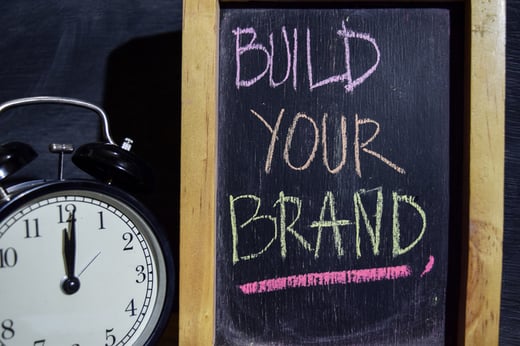 Have you ever noticed that some brand campaign efforts focus less on selling a product or service, and more on building a positive awareness and perception of the brand? This is known as brand awareness, and it is a powerful marketing tool. Why? Because people who are ready to make a purchase will turn to the brand that readily comes to mind first.
Have you ever noticed that some brand campaign efforts focus less on selling a product or service, and more on building a positive awareness and perception of the brand? This is known as brand awareness, and it is a powerful marketing tool. Why? Because people who are ready to make a purchase will turn to the brand that readily comes to mind first.
For example, when a person is buying a car, 90 percent of purchase intent comes from unaided brand recollection, according to a Nielsen study. What is unaided brand recollection? This occurs when a product is the first one to come to a buyer’s mind when ready to make a purchase, without any prompting from the brand. This phenomenon comes only through consistent brand awareness marketing. Here is a closer look at what brand awareness is, and how you can incorporate it into your marketing efforts.
What Is Brand Awareness?
Brand awareness refers to a person’s ability to identify familiar aspects of a business and its marketing items. This may mean recalling a slogan, recognizing a logo, or remembering a marketing message. It also means building positive feelings and belief about a business, and creating an image of the business that causes customers to speak knowingly about it. When customers drive down the road and see your logo or hear your jingle on the radio, and instantly connect that with your business, you have achieved strong brand awareness.
Why Is Brand Awareness Important?
Brand awareness is critical to the success of your business. When people are aware of your brand and its logo and other marketing, you will sell more. People are more likely to buy from a brand they know or click a website from a brand they are aware of. In fact, brand awareness and brand affinity increase click-through and conversion rates in online advertising by as much as three times. It takes time to build brand awareness, but once you reach the point where people know your brand well, you will have their trust, and that will lead to increased sales and loyalty from your customers.
How Do You Build Brand Awareness?
Building brand awareness does not happen overnight. It starts with creating your marketing goals. Set realistic goals that you can measure, and then start building your branding around it.
Next, you need to have the right marketing tools. You will need a slogan, logo, and radio jingle, at the very least. These need to be easy to recognize, uniquely yours, and catchy so your target audience will remember them.
Once you have your marketing tools in place, start marketing across multiple channels. Create a consistent message across radio, online advertising, print advertising, and other media platforms. Choose platforms with the potential to reach a lot of people, and target your ads carefully so they reach the right market. Then, release your advertising with a high frequency, which will help promote your desired awareness.
If your budget is tight, don’t assume you can’t increase brand awareness. You can use networking, social media, content marketing, referrals, Google AdWords, and SEO to market your business, all very affordably. Be willing, however, to invest in other types of advertising to help build that awareness even more effectively.
How Do You Track Brand Awareness?
One of the challenges of marketing to create brand awareness is the challenge of tracking your effectiveness. How can you tell if people are becoming more aware of your brand? There are a few brand awareness KPI that you can measure and track.
First, measure your website traffic. If people hear your brand campaign, they will Google you. If you're seeing increased brand awareness, it likely means your brand awareness marketing is working.
Next, track social shares. Are people sharing and liking your blog posts and social media work? If so, then your brand awareness is likely increasing.
Finally, track your overall sales. If you are working on brand identity awareness and see your sales numbers going up, it is a good indicator that your strategies are working.
As people develop shorter and shorter attention spans, building brand awareness is going to become even more critical to your success. You need people to be thinking about and trusting your brand. When they are, they will develop brand loyalty, and start talking about it. This is the ultimate goal of brand awareness marketing, as word of mouth marketing impacts 13 percent of customer sales and is five times more likely than paid media impressions to create a sale. All of this comes down to brand awareness, and this is a marketing tactic that is worth investing in.

